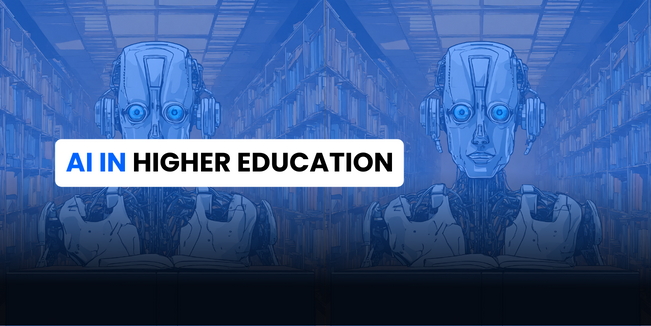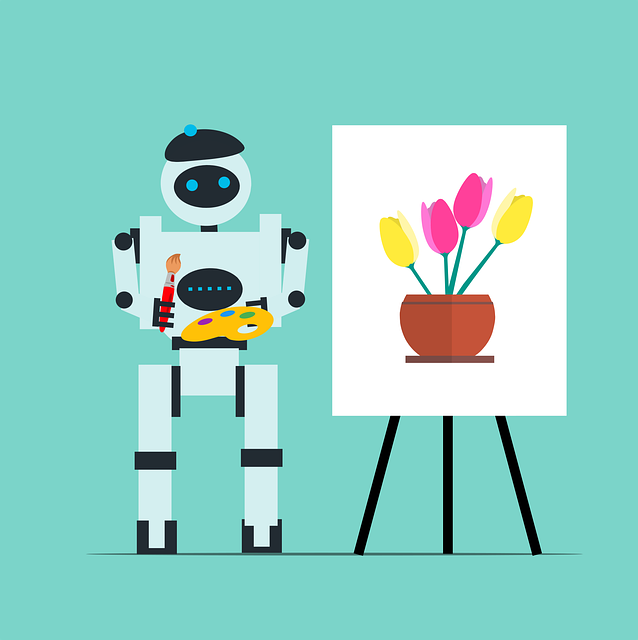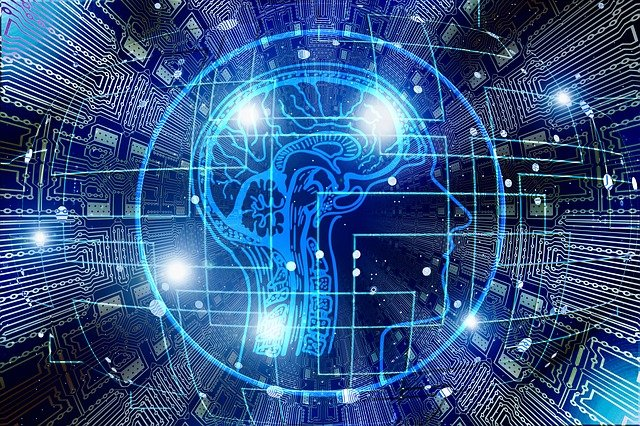Unlocking the Potential of AI in Higher Education

Higher education institutions are leveraging the power of artificial intelligence to revolutionize teaching, learning and administrative activities. As AI continues to impact higher education more profoundly We must consider the ethical implications this shift will bring as well as how best prepare students for a future dominated by it. This article looks into what potential benefits there may be in integrating AI within higher educations realms, along with any associated moral issues and approaches which could prove beneficial when training students on using such technology responsibly.
Key Takeaways
-
AI is transforming higher education by providing personalized learning, intelligent tutoring systems and data-driven decision making.
-
Colleges and universities have a role to play in ensuring ethical use of AI through frameworks for governance, transparency and accountability.
-
To prepare students for an AI dominated future, revised educational pathways must be developed with interdisciplinary collaboration between computer science & other fields.
The AI Revolution in Higher Education
The incorporation of Artificial Intelligence in higher education has caused a disruption to various administrative processes of academic status as well as the teaching and learning activities, including college admissions. With AI’s rapid growth due to the pandemic which entailed faculty having to use technology for instruction purposes, universities must recognize climate change and address any ethical concerns that arise from using such technology.
Education institutions need considering the moral implications behind utilizing this kind of advanced artificial intelligence systems within their curriculum. Although it could open up numerous potential advantages when used properly, if not considered carefully computer systems can potentially lead into risk taking with people’s data or worse depending on how they are applied .
AI Tools and Applications
AI tools and applications in higher education are abundant, with powerful possibilities. Personalized learning, intelligent tutoring systems (ITS) as well as predictive analytics such as data-driven decision making demonstrate how artificial intelligence ai can be utilized to revolutionize the way we learn. ITSs for example provide an AI system platform which highlights its potential use within educational institutes. Supported by virtual assistants that utilize interactive tutors and chatbots answering student questions and inquiries or providing aid where needed. Natural language processing capabilities create realistic short answer questions optimizing testing experience thus significantly impacting students’ interaction with course material improving their performance To overall learning experiences associated with them utilizing these advancements of Artificial Intelligence ai based technologies
The Role of Colleges and Universities
Colleges and universities must take the initiative to shape ethical AI use in higher education for students who are preparing for a future dominated by this technology. To prevent misapplication and the unintended consequences and results of its application, institutions should create policies governing AI practices within their environment. One such example is University of California’s Educational Technology Leadership Committee’s six core principles: ownership, ethics-based practice, transparency, freedom of speech protection access/control. The successful implementation of these measures will ultimately help facilitate teaching effectiveness, student learning and advancement as well as research accomplishments throughout all colleges and universities engaged with AI in any capacity .
Personalized Learning with AI

AI-driven personalized learning platforms leverage personal data to customize the educational content according to individual needs of students. AI also has an essential role in assessment and feedback as it streamlines grading, provides instantaneous response for learners and helps educators detect which areas need more support from them.
Enhancing Student Engagement
Using AI tools, student engagement can be increased by facilitating an active learning process which offers instant feedback and addresses individual needs. Interactive experiences enabled by virtual tutors that provide real-time doubt clearing are effective examples of AI facilitated interactive education. Progress is provided as the technology has the ability to access various data sets about students in order to furnish personalized support, resulting in more engaging and efficient educational approaches for learners. All this highlights how advanced technologies driven by Artificial Intelligence contribute to better schooling outcomes and enhance learning, for pupils.
Identifying At-Risk Students
AI can be used to pinpoint a particular student who may not have the best academic performance and is at risk of dropping out. It does this by analyzing factors in student data such as GPA, attendance record, previous learning outcomes, course engagement level and demographics like socio-economic background.
Through an advanced approach that incorporates various techniques along with AI technology to identify any early warning signs in students beforehand has been successful for providing timely support system. Thereby increasing potential chance of retaining those affected individuals within their studies. This proactive measure assists in improving overall student success rate among all students alike instead waiting till it becomes too late before attempting actionable solutions after something significant had already occurred due to negligence or lack thereof.
Streamlining Administrative Processes
Higher education is in the midst of a dramatic shift due to advances with AI. Institutions can use AI powered technologies, such as big data, analytics tools and chatbots for various tasks related to admissions processes and student services, like assistance regarding financial aid options available for prospective students. Automating these basic operations makes it much easier for both educators and those looking into higher education institutions alike.
Beyond administrative support functions, educational design has also been aided by artificial intelligence – from automated feedback systems which help grade work quickly or suggest particular learning pathways. Right through to intelligent applications tailored directly towards assisting each individual’s progress while at school (especially helpful when teaching large classes). This in instructional design not only reduces time spent on menial activities but allows more meaningful connections between teachers & their students concerning things that matter most throughout an academic journey: exploration, inspiration…learning!
Improving Efficiency and Productivity
AI applications can help optimize resource allocation, automate routine tasks, and aid in data-driven decisions related to admissions or curriculum planning. These apps free up time for faculty and staff so they can concentrate on core teaching duties such as providing students with personalised feedback which helps improve the student performance overall educational experience. AI has the power to completely revolutionise course design leading to more engaging learning activities. Ultimately these advances result in a better student outcome from increased efficiency of teachers due to automated processes like grading schedules and data entry being handled by AI technology
Data-Driven Decision Making
AI-powered tools can empower universities to make data-driven decisions for resource allocation, student support and curriculum offerings. Through AI, personalized marketing strategies can be devised leading to enhanced student experiences that may lead to higher enrollment rates as well as longer student retention periods in the institution. By using AI techniques one is ableto determine potential gaps in expertise or places of expansion based on what students are interested in which will then shape educational plans accordingly. Automating certain aspects such ascapturing scholar performance records over time relieves academics from performing mundane tasks so they would have more room think strategically about gathering facts related with both presentand future students
Ethical Considerations and Challenges
In the higher education sector, it is essential to consider and tackle ethical issues related to AI in prior studies and implementation such as ensuring transparency, taking accountability and finding a harmony between human expertise and AI. This will support responsible usage of Artificial Intelligence in this domain. To accomplish that goal in an effective manner requires looking into these considerations closely for successful deployment at universities or other learning institutions.
Ensuring Transparency and Accountability
AI systems can be difficult to understand and decode due to their complexity and the sheer amount of variables associated with them, a problem commonly known as “black box” issue. To tackle this challenge effectively it is necessary to take into account strategies such as increasing transparency for explainability purposes, ethical considerations in development processes, peer reviews/quality checks , user training sessions ,and establishing interdisciplinary teams which collaborate together on AI projects specifically related to education.
The lack of transparency when we make decisions using these kinds of technologies could lead us down an unintended road where bias might get perpetuated without even being aware that we are doing so. Consequently decision-making would also become inscrutable making accountability almost impossible when mistakes happen during operation or execution processes within Artificial Intelligence applications used in educational contexts. For ethics reasons it becomes crucial Ensuring enough transparency levels accompanied by responsibility policies apply at all times whenever dealing with advanced AI algorithms’ implementations meant specially but not exclusively for teaching purposes..
Balancing AI and Human Expertise
It is crucial to strike a balance between AI and human expertise in order to ensure teaching and learning are not over-relied on by AI systems. While personalized learning experiences can be enabled through automation of tasks, the role of teachers remains significant role essential for helping students reach their full potential - such as responding emotionally, providing assistance & guidance, fostering social interaction/collaboration among peers or tailoring instruction according to needs. This has an important impact on student’s enthusiasm towards education & desired outcomes from it. For developing responsible yet effective applications that use Artificial Intelligence (AI) rightly capabilities from computer science must be combined with knowledge related various disciplines like ethics. Transparency etc.; this will effectively exploit the possible transformative power possessed by AI technology itself..
Preparing Students for an AI-Dominated Future

Higher education institutions are tasked with the responsibility of preparing students for a future heavily dependent on Artificial Intelligence (AI). To achieve this, they must revise educational pathways for computer scientists and promote collaboration between computer science and other relevant fields to come up with innovative yet responsible AI solutions.
Integrating AI Competencies into Curricula
Higher education institutions are integrating AI competences into their academic programmes to ensure that students possess the necessary skills required for a labor market characterised by hybridization. Such essential AI knowledge includes understanding of concepts and principles, skill in usage and application of techniques along with tools needed for analysis, critical thinking as well as creative problem-solving relevant to this domain. For example Stanford University is known for its distinguished research programs related to Artificial Intelligence while The University of Florida offers curriculum designed keeping student’s need insight, so they can acquire applicable knowledge pertaining to it. To adequately prepare learners within higher ed settings before stepping out in an increasingly AI-driven world these capabilities must be implemented into core syllabus structures .
Fostering Collaboration between Computer Science and Other Fields
Interdisciplinary research and application of AI can potentially generate new, innovative ideas with ethical uses. In higher education systems, various examples are seen such as the projects at Columbia University, Montclair State University and Rochester Institute Technology who have successfully combined computer science with other fields. These collaborations have achieved a variety of notable results including setting objectives amongst ecology/computer science researchers, combining computing methodology in educational platforms, introducing novel machine learning techniques for use in computerized frameworks. Plus utilizing knowledge from different disciplines to form inspired solutions.
Summary
As we take advantage of the AI revolution in higher education, it is vital to be mindful of ethical implications, sustaining a harmony between human expertise and Artificial Intelligence while readying students for an AI-filled future. By doing this prudently and efficiently, all educational stakeholders (from educators to higher ed institutions) can enjoy positive results brought on by the transformative power of artificial intelligence.
Frequently Asked Questions
How is AI being used in higher education?
AI is making its way into higher education by streamlining grading, providing immediate feedback to pupils and offering insight into individual student achievement. This technology has also been instrumental in connecting universities with their students through AI-powered chatbots. All of these advancements in data science are helping to improve the educational landscape for everyone involved. From learners themselves right up to academics at institutions everywhere utilizing artificial intelligence tools in order to gain more successful results.
Why is AI important in higher education?
AI can help create personalized learning experiences, provide visual aids to bring abstract ideas to life, and handle routine tasks to free up educators’ time.
It can also aid with academic advising and reduce dropouts by proactively alerting other faculty members and staff of potential issues.
What are the issues with AI in higher education?
In higher education, the use of AI can pose several risks: teaching that is ineffective or sub-par quality, data protection and safety worries, potential discrimination caused by algorithms as well as problems arise as essays created from this technology negating learning.
What are some examples of AI tools and applications in higher education?
AI tools have become increasingly relevant in higher education, offering personalized learning platforms for students to take advantage of, as well as additional resources such as intelligent tutoring systems and AI-powered chatbots which provide help. Data driven decision making processes can also be beneficial when it comes to enhancing the educational experience through incorporating Artificial Intelligence into this sector.
How can AI enhance student engagement?
AI can help promote active learning and give immediate responses to students, thus helping them attend better to their individual needs. This kind of information technology also enables increased engagement for learners in a classroom setting.